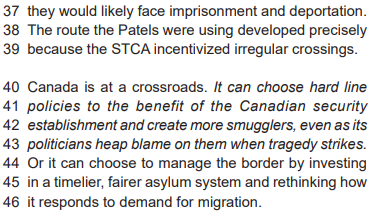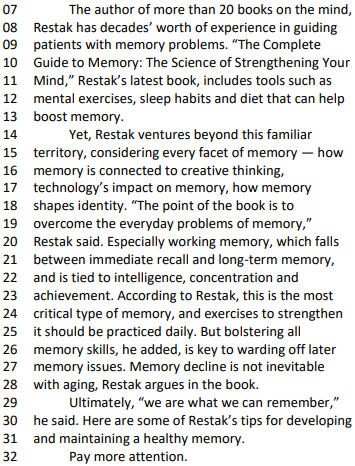Questões de Vestibular de Inglês - Preposições | Prepositions
Foram encontradas 46 questões









https://www.theguardian.com/environment/
2021/sep/27/
Why do we buy into the 'cult' of overwork?
By Bryan Lufkin, 9th May 2021
Although many of us associate overly ambitious workaholism with the 1980s and the finance industry, the tendency to devote ourselves to work and glamourize long-hours culture remains as pervasive as ever. In fact, it is expanding into more sectors and professions, in slightly different packaging. Overwork isn't a phenomenon exclusive to Silicon Valley or Wall Street. People work long hours all over the world, for many different reasons.
In Japan, a culture of overwork can be traced back to the 1950s, when the government pushed hard for the country to be rebuilt quickly after World War Two. In Arab League countries, burnout is high among medical professionals, possibly because its 22 members are developing nations with overburdened healthcare systems, studies suggest. Reasons for overwork also depend on industry. Some of the earliest researchers on burnout in the 1970s asserted that many people in jobs geared toward helping others, like employees in clinics or crisis-intervention centers, tended to work long hours that led to emotional and physical exhaustion – a trend which is shown up in the pandemic, too. But millions of us overwork because somehow, we think it’s exciting – a status symbol that puts us on the path to success, whether we define that by wealth or an Instagram post that makes it seem like we're living a dream life with a dream job. Romanticization of work seems to be an especially common practice among "knowledge workers" in the middle and upper classes. In 2014, the New Yorker called this devotion to overwork "a cult".
According to Anat Lechner, clinical associate professor of management at New York University. "We glorify the lifestyle, and the lifestyle is: you breathe something, you sleep with something, you wake up and work on it all day long, then you go to sleep. Again, and again and again."
Adapted from: Home - BBC Worklife.
Opportunity Cost
This phenomenon goes by the name of ‘opportunity cost,’ since by not investing in more equipment and a more rigid production flow, the company is forgoing the opportunity to earn increased profits. These costs are every bite as real as the payment of dollars out-of-pocket.
This notion _______ opportunity cost can be reinforced _________ a famous saying ______ Benjamin Franklin, no slouch himself _________ operations management. To make the point, however, we must make a brief excursion into logic. One truth of logic is the validity of the so-called contrapositive, which says simply that if the statement “If A, then B” is true, then it is also true that “If not B, then not A.” That is, of every time A occurs B follows, then we can be sure that if B does not occur, then A did not occur as well. Enough logic then, and back to Ben Franklin.
One of his Poor Richard sayings is that “A penny saved is a penny earned.” We have all recognized the truth of that since childhood, but I assert that by this saying Ben showed us he knows everything about opportunity cost. After all, what is the contrapositive of “A penny not earned is a penny not saved (i.e., a penny sent). All we are saying by this notion of opportunity cost is that “a penny not earned (an opportunity forgone) is a penny spent.” We shall often have occasion to consider opportunity costs, in analyzing and deciding various operations issues.
SCHMENNER, Roger W. Production/Operations Management. 5th
Edition. Prentice-Hall, 1993.